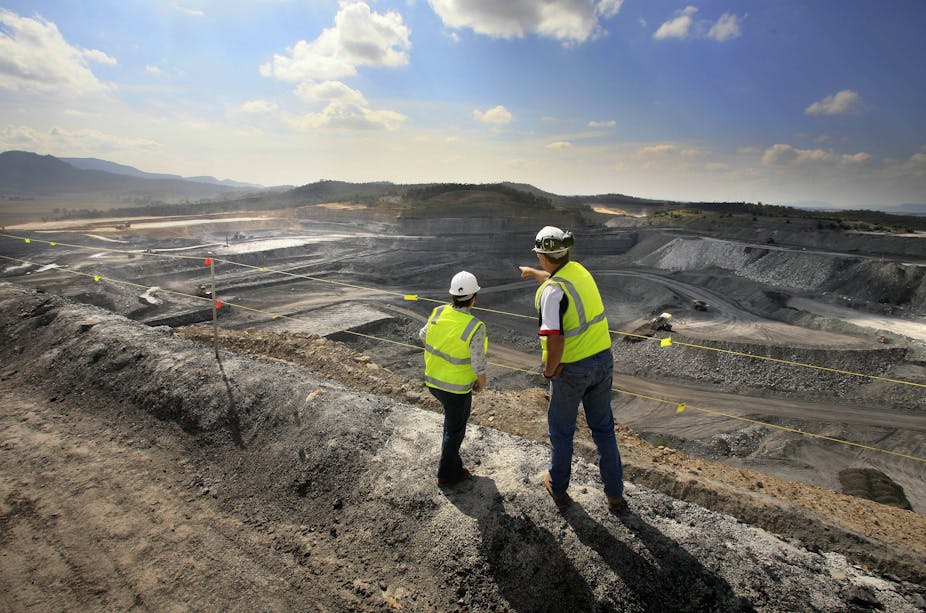The Gillard government’s recent budget announcement again raises the issue of how much Australia relies on skilled migrants to backfill skills shortages at a time of economic growth.
The shift in emphasis to pairing skilled migrants with real jobs in regional areas via sponsorship is a step in the right direction.
However, it will not alter the prospects of the current, and ever-growing, pool of skilled professionals who have been attracted from good jobs in their countries of origin to migrate to Australia to fill listed skills shortages.
They believe they are needed and welcomed. Yet far too many - at least 40% based on the Longitudinal Survey of Immigrants to Australia - fail to get work in their professional field within the first six months.
The figures vary according to different sources. The more recent Continuous Survey of Australian Migrants indicates that 22% of skilled migrants is unemployed or under-employed after the first six months.
This situation belies the assumptions embedded in the policy of filling skills shortages by means of increased skilled migration.
It also points to a much darker story about disillusionment, social exclusion, self-doubt and wasted opportunity.
The notion of skills shortages is “slippery”. How skills shortages are defined, determined and translated into government policy is not readily accessible.
Nonetheless, there is a skills list – currently including professional categories such as engineers, scientists and IT professionals among others.
The use of the list as a way of attracting and assessing suitable future participants in the Australian workforce implies that: a) jobs are available that cannot be filled through local recruitment and training in the short-term, and b) professionals recruited from overseas will be able to fill these positions.
Unfortunately, the assumed pathway to employment is not assured.
A survey currently underway conducted by the newly-formed Association of Skilled Migrants in Australia (ASMA) has unearthed a disturbing number of unemployed, under-employed or inappropriately employed skilled migrants.
To date, of more than 90 respondents, all with university degrees and relevant experience in their home country, only 18% are in appropriate employment.
Most are male, and in the prime age group for employment (30-39 years old), yet 48% report suffering financial stress, 54% are worried about their future and 19% report feelings of depression.
Of those taking the survey (a self-selected group) around two-thirds are engineers, scientists or IT professionals. The majority has postgraduate qualifications, including six PhDs. Respondents average ten years’ post-qualification experience.
So what makes these much desired future employees and citizens invisible?
One of the first acts of the 1996 Howard government was to introduce new conditions on skilled migrants: skills recognition; English language proficiency and the removal of any government assistance for the first two years.
This makes skilled migrants costless, unable to access welfare and some related services.
While invisible to the system, the financial burden of an unanticipated period of job-hunting is severe, especially for families.
The experiences of these jobseekers further suggest the benefits of the Howard government provisions regarding screening of qualifications and language skills are invisible to potential employers.
These highly experienced professionals who had high status employment in their country of origin, and all the networks and sense of social belonging that went with it, now find their claim on such recognition and support all but extinguished.
Employers seem to discount this prior experience and introduce a new hurdle; that of local experience. As skilled migrants take inappropriate employment in order to survive, the apparent relevance of their prior skills and experience is further eroded.
If Australia is to rely on the contribution of skilled migrants to support its economic future, the pathway to suitable employment needs to be better articulated. Skilled migrants embark on this journey with energy, commitment and aspiration.
They leave good jobs to come here. They are enthusiastic future citizens. Presenting them with insurmountable barriers impacts their self-esteem, mental health, family cohesion and social inclusion – eventually impacting their very employability.
ASMA will be launched in Melbourne today. Contact ASMA on ASMA skilledmigrantassociation@gmail.com.

